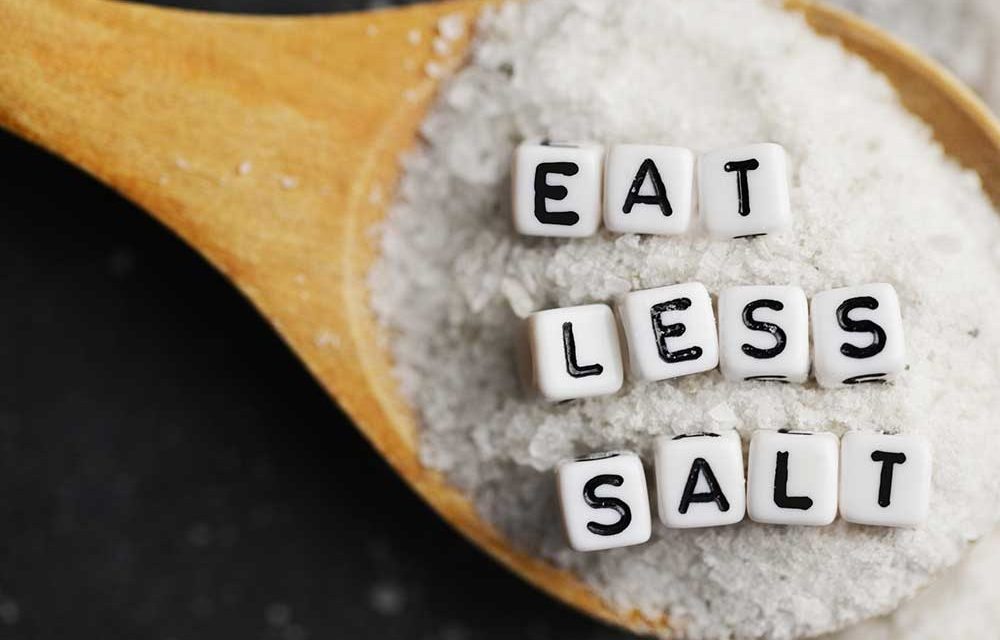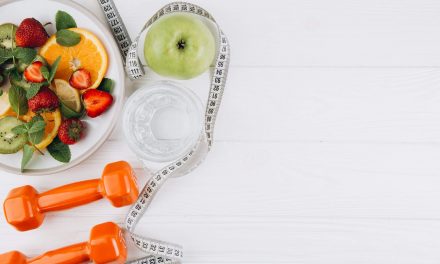Eating with a lot of salt is not good. Doctors, nutrition specialists, and the World Health Organization (WHO) say so. High sodium intake kills 3 million people worldwide each year. And it is shown that, on average, twice as much salt is consumed as recommended, 5 grams or 2 grams of sodium per day.
It doesn’t matter what your father or your husband says. Men and people with a higher body mass index consume the most salt. And it is unnecessary because, as Marina Escudero, nutritionist and nurse at Integrated Health Center, which manages the health group in Health Department, explains, “salt is already present naturally in food, and all that we add is unnecessary for our body.”
The argument of the increase in temperature and the loss of liquid due to sweat is not an excuse either. The Denia nutritionist explains that “although in summer we have greater losses of water and electrolytes, an increase in salt intake is not recommended in that season, but rather an increase in the intake of water and foods rich in it that, in addition to contributing salt’s minerals contain others essential for life that we do not find in it.”
In summer, we lose appetizers… but these do not have to be unhealthy. We must avoid all those foods or preparations with more than 1.25 grams of salt per 100 grams or 100 ml of product. Marina Escudero offers us healthy snacks or starters.
Healthy snacks and starters with a little salt
hummus with carrot or cucumber
natural nuts or roasted without salt
lupins
well rinsed pickles
assorted salads
grilled or raw vegetables in the form of sticks
tzatziki (Turkish dish based on yogurt, cucumber, water, and garlic)
fresh cheese
fruit
smoothies (fruit smoothies with milk)
gazpacho
cold vegetable creamsTips to reduce salt intake
The Spanish Society of Endocrinology and Nutrition has developed a guide to help citizens control salt intake in their daily diet. Here are the tips he provides:
Do not add salt to food, stews, or salads. Replace the flavor with herbs, spices, lemon, vinegar, pepper, garlic, etc.
Do not add salt while cooking; if not, add it better when you have already served and tasted the food.
Choose fresh products whenever possible: fresh meat and fish, fruits and vegetables. These foods contain little salt.
Avoid salty foods: salty nuts, appetizers, sausages, sausages, canned foods, packet soups, commercial pastries, cured cheeses, packet sauces, etc.
When we go shopping, we must choose the brands of products that contain less salt, and for this, we must always read the nutritional labeling.
Remember that the amount of salt consumed is related to the amount of food eaten because it is not the foods with the highest salt content that constantly add more salt to our diet. If we eat a lot of food with a "medium" proportion of salt, we will eat a lot of salt.
It is not necessary to stop eating foods with high salt content; reduce the frequency of consumption, and try to choose the option or brand that contains less. This encourages the consumption of foods with less salt.The holidays are finished. Today the month of August comes to an end, and with it, for many, the days or weeks on the beach, the countryside, or the mountains, the long afternoons with family and friends, and the nights without thinking about getting up early. We return to the routine of work and, shortly, children, adolescents, and university students to their studies. Like every year, we hear experts talk about the post-holiday syndrome. For this reason, from our Health Blog, we have spoken with the Mental Health specialists of the health group to give us the keys to a return to a healthy routine.
It is not always easy to get back to the day-to-day, and September is a tough month for many because of what it means to reorganize the new “course.” Whether we have children or not, in September we organize the “school year”: we decide if we go to the gym, do pilates or paddle tennis, if we study English, we enroll the children in an academy, we start a new language, or we are going to train for the half marathon.
You have to take it easy. It is not necessary to make all decisions immediately.
The Mental Health professionals of the group remind us that many of the symptoms that reflect problems of readjustment to the routine and usual rhythm are normal if they do not make us lose our day-to-day functionality. But they recommend that we go to a specialist if any of them exceed or limit us:
Sleeping problems
mental and physical fatigue
Lack of concentration and performance
Irritability
Anxiety
feeling of overflow
Negative thoughts
Apathy
Sadness
Lack of motivation“The most important thing is to accompany the person in the process of connecting with their internal resources in this return to the routine that some find difficult, focusing on what it works, avoiding the complaint continues and teaching him to regulate the emotions that arise in his day to day.”
If you are a person who finds it difficult to adapt to changes, tend to control, have a phobic or fearful personality or have a problem at work that requires a more significant effort to return, read these tips, and you will see how they help you. If not, see a specialist.





